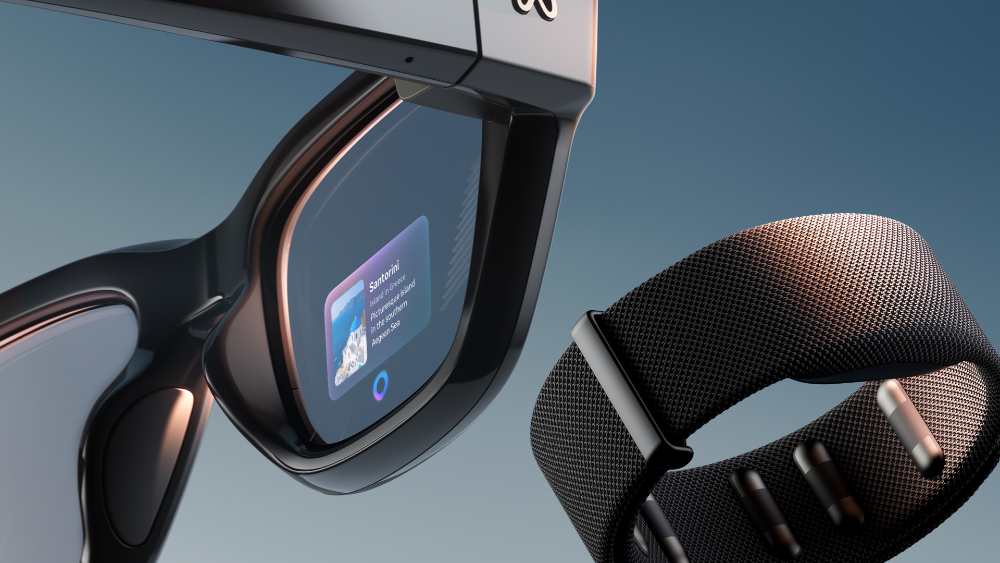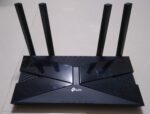Meta has unveiled its most advanced smart glasses yet – the $799 Ray-Ban Display. Announced at the Meta Connect 2025 event, these glasses feature a small color screen in the right lens and come with a special wristband that reads muscle signals from your hand.
“The promise of glasses is to preserve this sense of presence that you have with other people,” said CEO Mark Zuckerberg during the presentation. “I think that we’ve lost it a little bit with phones, and we have the opportunity to get it back with glasses.”
The Ray-Ban Display’s most striking feature is its small, full-color screen built into the right lens. Unlike regular smart glasses, this display lets users view messages, preview photos, see translations, and get directions without pulling out their phone. The screen is placed off to the side, so it doesn’t block normal vision.
Each pair comes with the Meta Neural Band, a wristband that uses surface electromyography (sEMG) technology. This band detects the tiny electrical signals your brain sends to your muscles when you move your fingers, allowing you to control the glasses with subtle hand gestures. Zuckerberg claimed he can type about 30 words per minute using this system, though research participants averaged closer to 21 words per minute.
The glasses will be available in the US starting September 30 for $799, in Black and Sand colors. They feature Transitions lenses that work both indoors and outdoors. Battery life is up to 6 hours of mixed use, with the collapsible charging case extending that to 30 hours total.
Similar Posts
Meta also announced two other models: the Ray-Ban Meta (Gen 2) starting at $379, which doubles battery life to 8 hours and improves video quality to 3K at 60fps; and the sports-focused Oakley Meta Vanguard at $499, which features a center-mounted camera with a wider 122-degree field of view and integrations with fitness apps like Strava and Garmin.
The Ray-Ban Display requires in-store fitting at Best Buy, LensCrafters, or Ray-Ban stores, suggesting Meta wants customers to try before buying this new technology.
During the demo, Zuckerberg experienced technical difficulties when trying to make a video call, highlighting that the technology isn’t yet perfect. “This is uh — you know, it happens,” he admitted when the call failed to connect.
Meta’s push into smart glasses faces growing competition. Google has partnered with Warby Parker, Snap plans to release new AR glasses in 2026, and Apple is reportedly developing its own smart glasses for release next year.
Meta and EssilorLuxottica (Ray-Ban’s parent company) have already sold over 2 million pairs of their previous smart glasses model, with revenue more than tripling during the first half of this year compared to last year.
Meta’s Chief Product Officer Chris Cox framed the significance clearly: “Smart glasses are the future of computing… interfaces will get more natural, and so we certainly believe that the next really important wearable technology is going to be a pair of glasses.”







